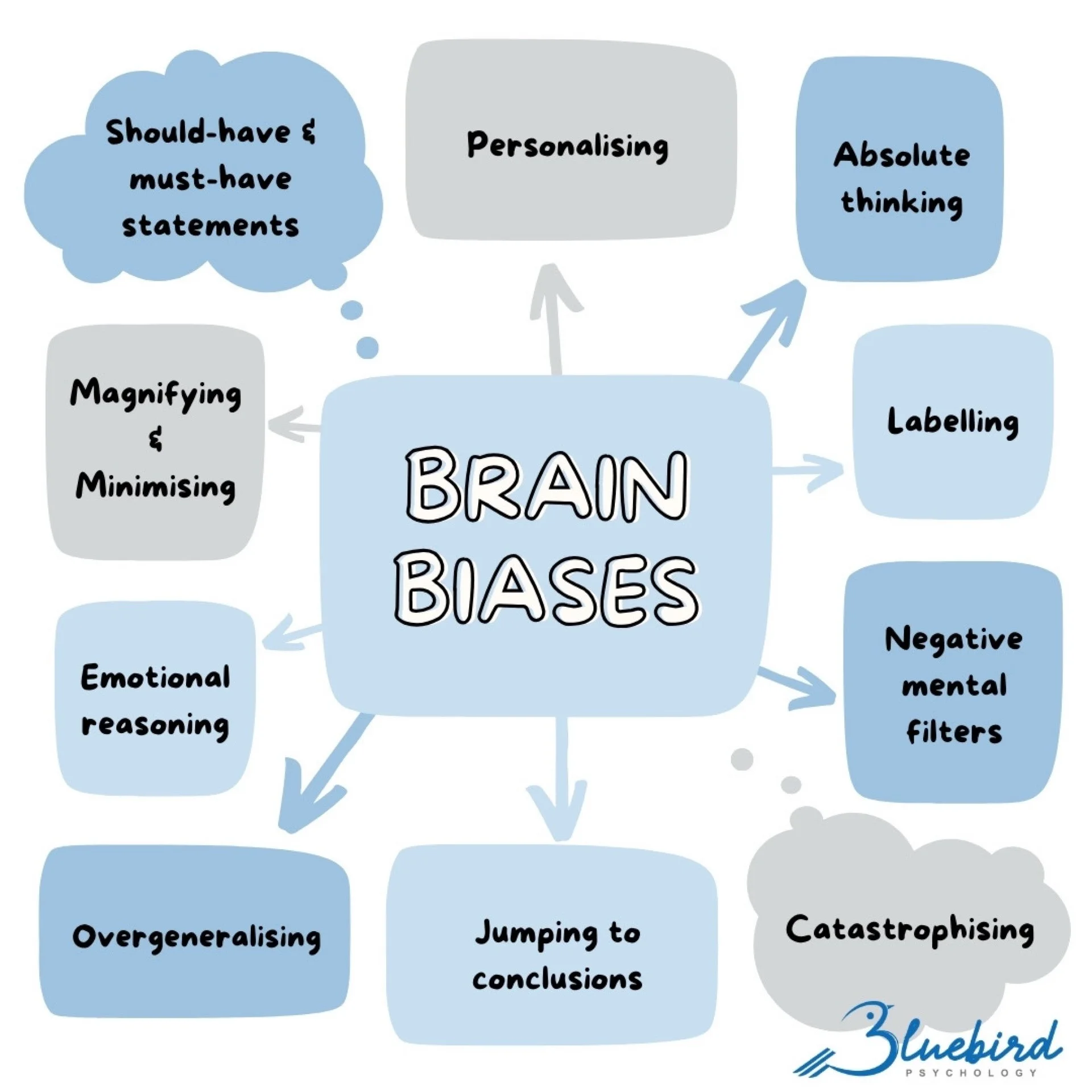Cognitive Behavioural Therapy (CBT: Brain Biases
Did you know that Bluebird Psychology offers Cognitive Behavioural Therapy (CBT) for children and adolescents ages 6-18?
One of the biggest things we work on in CBT is fighting our brain biases or cognitive distortions. Brain biases lead to skewed thinking patterns, often causing us to perceive situations in unrealistic ways. These biases can negatively affect our emotions and behaviours, making it essential to identify and challenge them for healthier, more balanced thinking.
Below are some of the common brain biases:
🌟 ✨Should-Have and Must Statements: This bias involves placing rigid expectations on ourselves, believing we should or must do certain things, which can lead to feelings of guilt or disappointment
😅 😠Personalizing: This bias happens when we take responsibility for events outside our control or blame ourselves for things that aren’t our fault.
🖤🤍 Absolute Thinking: This bias is all or nothing – seeing things in black and white without acknowledging the gray areas in between, like being a ‘total success’ or a ‘complete failure.’
🔎🔍Magnifying and Minimizing: Here, we exaggerate the negative aspects of a situation while downplaying the positives, leading to an imbalanced perspective.
🏷️🏷️Labelling: This involves defining ourselves or others based on a single event or behavior, which limits our view of potential.
☔️🌧 Negative Mental Filters: This bias is when we focus only on the negative details of a situation and ignore the positives, creating a skewed perception.
🚧😱 Catastrophizing: This involves expecting the worst possible outcome in a situation, making minor issues feel overwhelming.
🤨🔍 Jumping to Conclusions: This bias means making assumptions or jumping to conclusions without sufficient evidence, often leading to misunderstanding.
🌪✨ Overgeneralizing: This bias leads us to take one negative experience and apply it broadly to all situations, setting ourselves up for disappointment.
😢💖 Emotional Reasoning: This involves believing that our emotions reflect reality, so if we feel something is true, we think it is true.
At Bluebird Psychology, we work with children to uncover and explore these brain biases through the use of games, art, play, and conversation, to figure out the harmful ways these thoughts impact our days and to come up with new, healthier, and more balanced ways of thinking about things!
Combined with things like mindfulness, healthy habits (ex. good diet, getting excercise), CBT can be a great way to learn some new tools for navigating complex emotions and feeling better! To learn more about what CBT is, click here!

